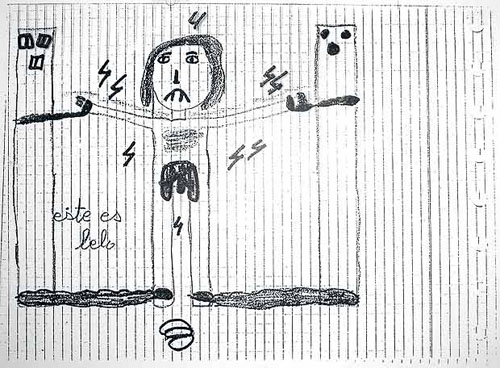Noticia del 29 de Abril del 2008
COMENTARIOS: Básica la noticia, en su inglés original comenta que Microsoft ha ofrecido una serie de herramientas a los diferentes cuerpos de policía mundial para abrir puertas que era difíciles de abrir dentro de varios sistemas operativos, haciendo más fácil las tareas sobre equipos requisados donde se hayan podido cometer diferentes delitos.
Microsoft device helps police pluck evidence from cyberscene of crime
By Benjamin J. Romano
Seattle Times technology reporter
Microsoft has developed a small plug-in device that investigators can use to quickly extract forensic data from computers that may have been used in crimes.
The COFEE, which stands for Computer Online Forensic Evidence Extractor, is a USB "thumb drive" that was quietly distributed to a handful of law-enforcement agencies last June. Microsoft General Counsel Brad Smith described its use to the 350 law-enforcement experts attending a company conference Monday.
The device contains 150 commands that can dramatically cut the time it takes to gather digital evidence, which is becoming more important in real-world crime, as well as cybercrime. It can decrypt passwords and analyze a computer's Internet activity, as well as data stored in the computer.
It also eliminates the need to seize a computer itself, which typically involves disconnecting from a network, turning off the power and potentially losing data. Instead, the investigator can scan for evidence on site.
More than 2,000 officers in 15 countries, including Poland, the Philippines, Germany, New Zealand and the United States, are using the device, which Microsoft provides free.
"These are things that we invest substantial resources in, but not from the perspective of selling to make money," Smith said in an interview. "We're doing this to help ensure that the Internet stays safe."
Law-enforcement officials from agencies in 35 countries are in Redmond this week to talk about how technology can help fight crime. Microsoft held a similar event in 2006. Discussions there led to the creation of COFEE.
Smith compared the Internet of today to London and other Industrial Revolution cities in the early 1800s. As people flocked from small communities where everyone knew each other, an anonymity emerged in the cities and a rise in crime followed.
The social aspects of Web 2.0 are like "new digital cities," Smith said. Publishers, interested in creating huge audiences to sell advertising, let people participate anonymously.
That's allowing "criminals to infiltrate the community, become part of the conversation and persuade people to part with personal information," Smith said.
Children are particularly at risk to anonymous predators or those with false identities. "Criminals seek to win a child's confidence in cyberspace and meet in real space," Smith cautioned.
Expertise and technology like COFEE are needed to investigate cybercrime, and, increasingly, real-world crimes.
document.write('');
"So many of our crimes today, just as our lives, involve the Internet and other digital evidence," said Lisa Johnson, who heads the Special Assault Unit in the King County Prosecuting Attorney's Office.
A suspect's online activities can corroborate a crime or dispel an alibi, she said.
The 35 individual law-enforcement agencies in King County, for example, don't have the resources to investigate the explosion of digital evidence they seize, said Johnson, who attended the conference.
"They might even choose not to seize it because they don't know what to do with it," she said. "... We've kind of equated it to asking specific law-enforcement agencies to do their own DNA analysis. You can't possibly do that."
Johnson said the prosecutor's office, the Washington Attorney General's Office and Microsoft are working on a proposal to the Legislature to fund computer forensic crime labs.
Microsoft also got credit for other public-private partnerships around law enforcement.
Jean-Michel Louboutin, Interpol's executive director of police services, said only 10 of 50 African countries have dedicated cybercrime investigative units.
"The digital divide is no exaggeration," he told the conference. "Even in countries with dedicated cybercrime units, expertise is often too scarce."
He credited Microsoft for helping Interpol develop training materials and international databases used to prevent child abuse.
Smith acknowledged Microsoft's efforts are not purely altruistic. It benefits from selling collaboration software and other technology to law-enforcement agencies, just like everybody else, he said.









Hola! Enhorabuena por tu blog!.
ResponderEliminarVeo que va destinado a prevenir la pornografía infantil. Me parece muy interesante advertir a los internautas y esta es una buena forma de hacerlo.
Yo intento realizar una tarea similar, pero quizás algo más oscura, desde una perspectiva distinta. La mayoría de los detenidos en España por estos asuntos son simples usuarios de la red P2P.
Muchos NO BUSCABAN PORNOGRAFÍA INFANTIL. El problema es que alguien llena la red de fakes y archivos ilegales. ¿quién quiere acabar con la red P2P?. Simplemente un punto de vista diferente.
Mandar 6 años a la cárcel a un joven que no ha tocado a ningún menor es un disparate.
http://www.cuidado189.tk
Saludos y gracias!
Indignado